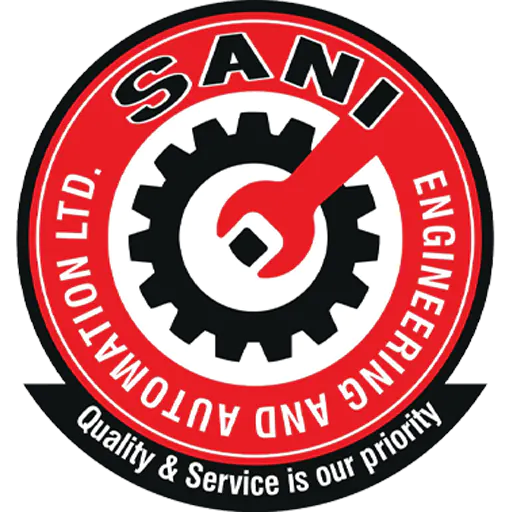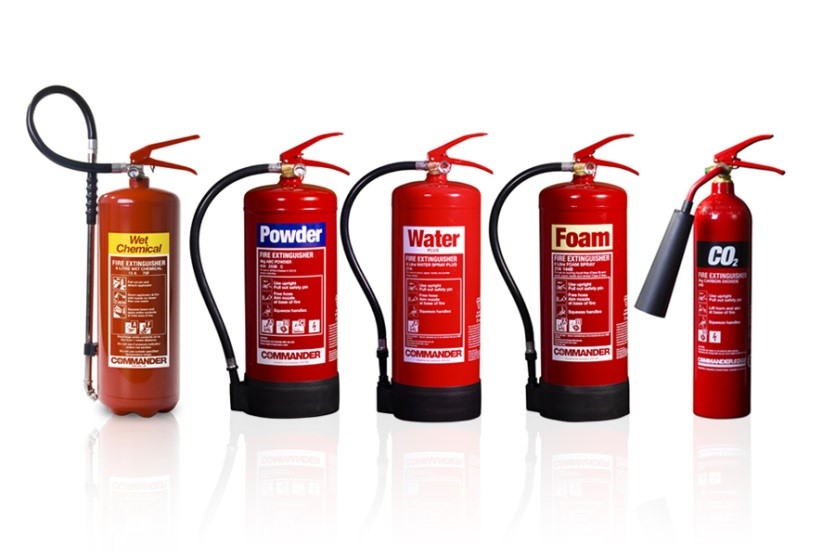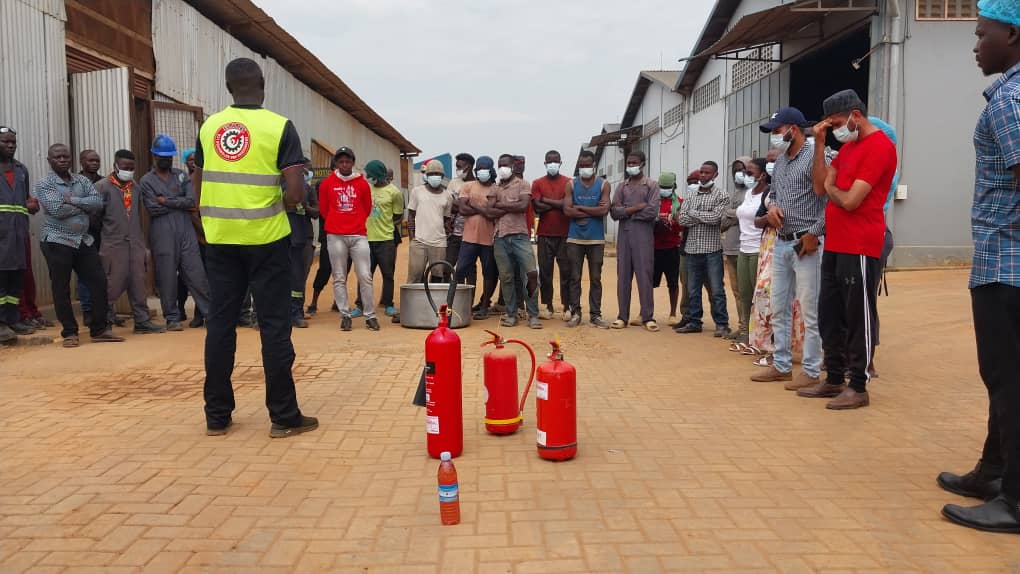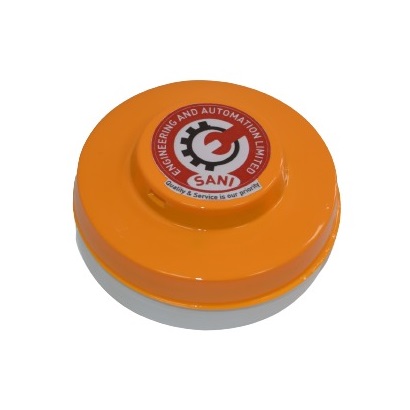When it comes to safety, nothing gives peace of mind like knowing you are prepared for emergencies. Fire is unpredictable, but with the right equipment, you can control it before it gets out of hand. At Sani Engineering & Automation Ltd, we help businesses, homeowners, and institutions in Uganda stay safe with reliable fire extinguishers.
In this blog, we’ll guide you on the types of fire extinguishers available in Uganda, how much they cost, and how to choose the right one for your needs.
Why Fire Extinguishers Matter
Fire extinguishers are not just required by law in many settings — they save lives and property. A small fire can double in size every 30 seconds. If you have the right extinguisher close by, you can stop it before it spreads.
We have seen many cases where a simple fire extinguisher has prevented massive losses. That’s why we always encourage our clients to never treat safety as an afterthought.
Fire Extinguishers Uganda: Types You Should Know
Not every extinguisher works for every type of fire. Choosing the right one is critical. In Uganda, the most common fire extinguishers include:
1. Water Fire Extinguishers
- Best for ordinary fires involving paper, wood, and fabrics.
- Affordable and easy to use.
- Not suitable for electrical or oil fires.
2. Foam Fire Extinguishers
- Effective for fires caused by flammable liquids like petrol and diesel.
- Forms a blanket to smother flames.
- Can also be used on solid fires.
3. CO₂ (Carbon Dioxide) Fire Extinguishers
- Perfect for electrical fires in offices, homes, and IT rooms.
- Leaves no residue, which means no damage to equipment.
- Must be used carefully in enclosed spaces.
4. Dry Powder Fire Extinguishers
- Versatile and can handle multiple fire types.
- Good for vehicles, workshops, and industries.
- May leave some residue, so it’s better for outdoor or industrial use.
5. Wet Chemical Fire Extinguishers
- Designed for kitchen fires involving cooking oils and fats.
- Creates a cooling effect and prevents re-ignition.
We guide our clients based on their environment — whether it’s an office, factory, school, or home. The right extinguisher makes all the difference.
Fire Extinguishers Uganda: How Much Do They Cost?
The price of a fire extinguisher in Uganda depends on its size, type, and quality. Here’s a simple guide to help you:
- Small Extinguishers (1–2kg): From UGX 70,000 – ideal for cars and small offices.
- Medium Extinguishers (4–6kg): From UGX 120,000 – suitable for homes and shops.
- Large Extinguishers (9–12kg): From UGX 200,000 – best for factories, schools, and large spaces.
CO₂ extinguishers are slightly more expensive because of their special use in electrical settings, while wet chemical extinguishers are mostly used in commercial kitchens.
We always recommend investing in high-quality extinguishers instead of going for the cheapest option. A faulty extinguisher during an emergency can cost much more than the price difference.
How to Stay Safe With Fire Extinguishers
Buying a fire extinguisher is the first step. Using and maintaining it correctly is just as important.
1. Learn How to Use It
We train our clients on the PASS rule:
- Pull the pin.
- Aim at the base of the fire.
- Squeeze the handle.
- Sweep side to side.
2. Place Extinguishers in the Right Spots
- Keep one in the kitchen.
- Have one in the living room or corridor at home.
- Offices should place them near exits.
- Factories need multiple extinguishers spread across different sections.
3. Service Regularly
A fire extinguisher needs annual servicing to ensure it works properly. Pressure levels can drop, and hoses can get blocked. We offer professional servicing and refilling in Uganda to keep your equipment in top shape.
4. Don’t Replace Training With Equipment
Even the best extinguisher is useless if no one knows how to use it. We encourage staff training and awareness for every workplace.
Why Choose Us for Fire Extinguishers in Uganda
At Sani Engineering & Automation Ltd, we don’t just sell extinguishers. We provide complete fire safety solutions. From supply and installation to servicing and training, we are here to make sure you are fully protected.
We take pride in offering UNBS-approved fire extinguishers that meet safety standards in Uganda. Our goal is simple: to help you protect lives and property.
Call to Action
🔥 Don’t wait for a fire emergency to start thinking about safety. Get in touch with us today for the best fire extinguishers in Uganda, expert advice, and professional servicing.
📞 Contact us now and let’s keep your home, office, or factory safe.
FAQs
1. How often should I service my fire extinguisher in Uganda?
At least once a year. Regular servicing ensures it will work during an emergency.
2. Can I refill a fire extinguisher after use?
Yes, extinguishers can be refilled after use. We provide refilling services to restore them.
3. Which fire extinguisher is best for homes in Uganda?
For most homes, a dry powder or CO₂ extinguisher is ideal because it covers multiple fire types.
4. Are fire extinguishers required by law in Uganda?
Yes, workplaces, commercial spaces, and institutions are required to have fire extinguishers by law for safety compliance.
5. How do I know which extinguisher I need?
It depends on your environment. Contact us, and we’ll recommend the right extinguisher for your specific needs.

